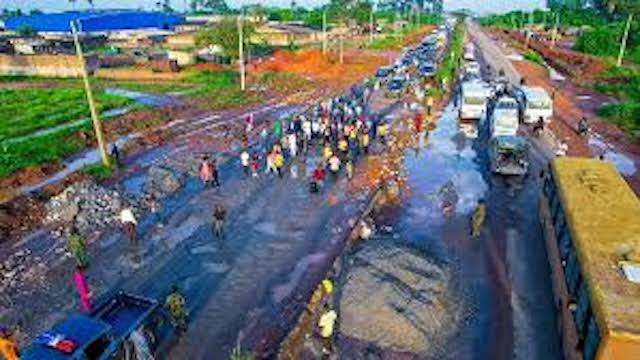The Sagamu-Ijebu Ode Expressway, a critical artery in southwestern Nigeria, is undergoing a much-needed reconstruction, but the project has become a source of frustration for motorists and commuters. Initiated in February 2024 by the Federal Government amidst public outcry over the road’s deplorable condition, the 60km project stretching from the Sagamu Interchange to Itele was intended to alleviate years of suffering. However, the pace of work has been agonizingly slow, transforming the anticipated relief into a new set of challenges. Motorists report spending hours in gridlock, a situation exacerbated by the ongoing construction, which has reduced the usable sections of the road. This congestion has not only increased travel time but also fueled risky driving behaviors, such as driving against traffic to circumvent the worst affected areas.
The public sentiment is a mixture of appreciation for the government’s intervention and disappointment at the sluggish progress. While acknowledging the importance of the reconstruction, road users express concern that the kilometers covered since the contractors mobilized in April are far from satisfactory. The slow pace has amplified the existing hardships, leading to increased accidents, vehicle damage, and lost productivity. Drivers lament the extended travel times, which translate to higher fuel consumption without a corresponding increase in fares, ultimately impacting their earnings. The situation has also created opportunities for criminal elements who exploit the congestion to extort money from drivers, particularly truck operators.
Despite the widespread frustration, some stakeholders advocate for patience, emphasizing the long-term benefits of the project. They highlight the contractors’ commitment, working seven days a week, and urge understanding for the complexities of road construction. The authorities, both at the federal and state levels, have also addressed the concerns, attributing the slow progress to the rainy season, which hinders concrete and asphalt work. They emphasize the need for a solid foundation to ensure the longevity of the road, arguing that rushing the process would compromise the quality and ultimately lead to premature failure. The project, divided into two sections, is scheduled for completion by August 2028.
The first section, spanning 12km from the Interchange to Iperu-Remo Junction, falls under the purview of the Lagos Federal Controller of Works. The second section, from Iperu-Remo to Ajebamdele, is managed by the Ogun State Federal Controller of Works. Although under separate administrative oversight, both sections are being executed by the same contractor. Officials assure the public that the project will not be abandoned and that adequate funding has been secured. The entire stretch will be reinforced with concrete, a decision aimed at providing a durable and lasting solution to the perennial problem of the dilapidated expressway.
The Ogun State government echoes the Federal Government’s commitment to a permanent solution, contrasting the current approach with past palliative measures that proved ineffective against the ravages of the rainy season. They underscore the strategic importance of the corridor, which leads to the Gateway International Airport and a vital industrial layout, highlighting its significance to both the state and national economies. This emphasis on long-term durability and economic importance forms the core justification for the chosen construction method and the perceived slow pace.
Ultimately, the Sagamu-Ijebu Ode Expressway reconstruction project presents a complex scenario. While the long-term benefits are undeniable, the immediate challenges posed by the slow pace of work are significant. The resulting traffic congestion, increased travel time, and associated risks underscore the need for effective communication and management of the project. Balancing the need for a durable, long-lasting solution with the urgency of alleviating current hardships remains a critical challenge for the authorities. The success of the project will depend on their ability to address these concerns and maintain public confidence while ensuring the timely and quality completion of the reconstruction.













